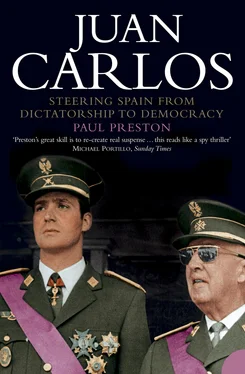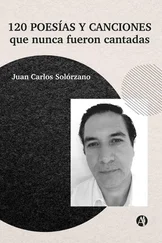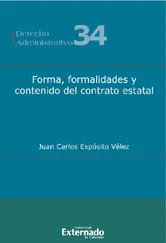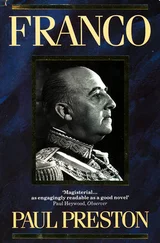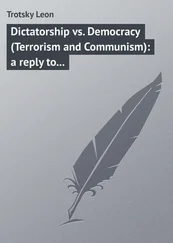Danvila and Sotomayor were suggesting to Franco the many advantages to be derived from having Juan Carlos in Spain. News of the monarchist negotiations with the PSOE galvanized the Caudillo into arranging a meeting with Don Juan on his yacht, the Azor. At first, precisely because of the negotiations with the Socialists in France, Don Juan fended off various invitations passed to him by the courtiers in Madrid. However, he was aware of the difficult situation in which the monarchist cause found itself and was also concerned about the education of his son. Danvila visited him in Estoril and finally Don Juan agreed to meet the Caudillo in the Bay of Biscay, on 25 August 1948. 101 Don Juan omitted to inform his own close political advisers, even Gil Robles.
When Don Juan came aboard the Azor , Franco greeted him effusively and, to Don Juan’s bemusement, cried profusely. They then spoke alone in the main cabin for three hours. Apart from the short official account given to the Spanish press, the only detailed information derives from Don Juan’s various accounts. The emotional outburst over, Franco quickly gave Don Juan the impression that he believed him to be an idiot, entirely in the hands of embittered advisers and totally ignorant of Spain. Barely allowing him to get a word in edgeways, the Caudillo counselled patience and blithely reassured Don Juan that he was in splendid health and expected to rule Spain for at least another 20 years. To the consternation of Don Juan, he spoke of his devotion to Alfonso XIII, and again wept. Franco claimed that there was no enthusiasm within Spain either for a monarchy or for a republic although he boasted that he could, if he wished, make Don Juan popular in a fortnight. He was nonplussed when Don Juan asked him why, if the creation of popularity was so easy, he constantly used popular hostility as an excuse for not restoring the monarchy. The only reason that the Caudillo could cite was his fear that the monarchy would not have the firmness of command necessary. In contrast to what he must have supposed to be Don Juan’s practice, he declared, ‘I do not allow my ministers to answer me back. I give them orders and they obey.’ The meeting took a dramatic turn for the worse when, exasperated by Franco’s patronizing distortions of history, Don Juan reminded him that in 1942, he had promised to defend Berlin with a million Spanish soldiers. As the temperature plummeted, Franco stared at him silently.
In fact, there were many reasons why Franco had already eliminated Don Juan as his successor. His real motive for arranging the meeting finally emerged when he expressed his desire for the now ten-year-old Prince Juan Carlos to complete his education in Spain. The advantages to Franco were obvious. Juan Carlos would be a hostage whose presence in Spain would create the impression of royal approval of Franco’s indefinite assumption of the role of regent. It would make it easier for the Allies to accept that things were changing in Spain. Moreover, in Franco’s hands, the Prince would also be an instrument to control the activities of Don Juan and the entire political direction of any future monarchical restoration. Speaking with his habitual combination of cunning and prejudice, Franco patronizingly instructed Don Juan about the dangers run by princes under foreign influence. Don Juan pointed out that it would be impossible for his son to go to Spain while it remained an offence to shout ‘ ¡Viva el Rey ’; (Long live the King) and active monarchists were subjected to fines and police surveillance. Franco offered to change all that, but no firm agreement was made about the future education of Juan Carlos. 102
Don Juan had agreed to meet Franco because he had already reached the conclusion that the Caudillo would survive and that a future monarchical restoration would happen only with his approval. He told an official of the American Embassy in Lisbon that before the Azor meeting, his relations with Franco were at an impasse and that now he had got ‘his foot in the door’. The price was a serious weakening of his position. To the delight of Franco, secret police reports revealed that some of Don Juan’s supporters were outraged at what they saw as treachery to the monarchy and were inclined to abandon his cause. 103 His most prominent representatives in Spain were deep in Franco’s pocket. The Duque de Sotomayor and Julio Danvila, acting as intermediaries from El Pardo, pressed Don Juan for a decision about Juan Carlos’s education. He hesitated on the grounds that any announcement about the issue would be used by Franco to imply that he had abdicated.
Juan Carlos did not know that an even more complete separation from his parents was under discussion. He had longed to return home to Estoril for the summer holidays and once there, he spent the time playing with friends, frolicking on the beach and horse riding. He had no desire to return to his boarding school in Fribourg and was thus delighted when he was allowed to stay on at Estoril. Since preparations were afoot for him to go to Spain, Don Juan saw no point in sending him back to school. Juan Carlos was in limbo, happy to be with his parents and unaware that his father was contemplating sending him as a hostage to Franco. At the beginning of October, Vegas Latapié advised Don Juan that this situation played into Franco’s hands by making it obvious that the boy was eventually going to be sent to Spain. Within 12 hours, arrangements were made for Juan Carlos’s rapid, and presumably upsetting, return to Fribourg accompanied by Vegas Latapié. In his heart, Don Juan was convinced that there could be no restoration against the will of Franco. He knew that the international situation totally favoured the Caudillo. So, the boy’s interests were made subordinate to the need for a minor political gesture. 104
The advantages of the uneasy rapprochement between the dictator and Don Juan were entirely one-sided. To Franco’s satisfaction, the negotiations between monarchists and Socialists became meaningless. The so-called Pact of St Jean de Luz, so painfully constructed throughout 1948 and finally signed in October by Indalecio Prieto and Gil Robles, was the first serious attempt at national reconciliation since the Civil War. Now it was rendered stillborn. The Azor meeting completely discredited the democratic monarchist option for which moderate Socialists and Republicans had broken with the Communist Party and the Socialist left. It must have given Franco intense pleasure to read a letter, intercepted by his secret services, in which Indalecio Prieto referred to ‘the little cutey of Estoril’. 105 In return, Franco merely gave Don Juan superficial respect and a stab in the back. The destabilizing effects on Juan Carlos – educational or emotional – played no part in the considerations of any of the players in this particular game.
On the occasion of Franco’s 25th wedding anniversary, Don Juan sent a message of congratulation. He took the opportunity to say that he had decided to keep Juan Carlos at his boarding school in Switzerland until the arrangements were in place for him to go to Spain. He mentioned, ‘the lively interest shown by his grandmother, Queen Victoria Eugenia, in having him with her before such a long separation’. What is remarkable is that the boy’s own parents seemed not to need to spend time with their son prior to what was likely to be a gruesome experience for him. 106
The real significance of the Azor meeting was brutally revealed on 26 October when Franco arranged for news to be leaked that Juan Carlos would be educated in Spain. With no concessions from Franco other than a promise that the monarchist daily ABC could function freely and that restrictions on monarchist activities would be lifted, Don Juan was forced to put an end to his hesitations. 107 On 27 October, he sent a telegram to Eugenio Vegas Latapié: ‘It is urgent that you come with the Prince as soon as possible. Stop. There are SAS and KLM flights direct to Lisbon. Stop. I’ll explain why when you arrive. Stop.’ Vegas Latapié sent a cable to Estoril pointing out that they could save a day or more by taking a flight to Madrid and then changing for Lisbon. However, Don Juan sent categoric instructions that they were not to return via Spain. A somewhat bewildered Juan Carlos made the journey as instructed and then waited aimlessly in Estoril. He was distressed when told about the plans for his education in Spain. He was especially upset when he discovered that he was not to be accompanied by his tutor. The fact was that the Caudillo, eagerly backed by Don Juan’s enthusiastically pro-Franco advisers, the Duque de Sotomayor and Danvila, did not want Vegas Latapié to have any influence on the Prince’s education in Spain. At one point, the Prince said to Vegas, ‘I’m sad that you’re not coming to Spain with me!’ Before Vegas could reply, Don Juan, perhaps feeling guilty about what he was doing to his son, interrupted brusquely ‘Don’t be stupid, Juanito!’ Doña María de las Mercedes was deeply aware of how affected her son would be by the separation from his beloved tutor. Don Juan rather feebly suggested that Vegas Latapié return to Spain in a personal capacity in order to spend time with the Prince on Sundays. Vegas sadly pointed out that a ten-year-old boy could not be expected to give up his exiguous free time to go for walks with a crusty old man. 108
Читать дальше
